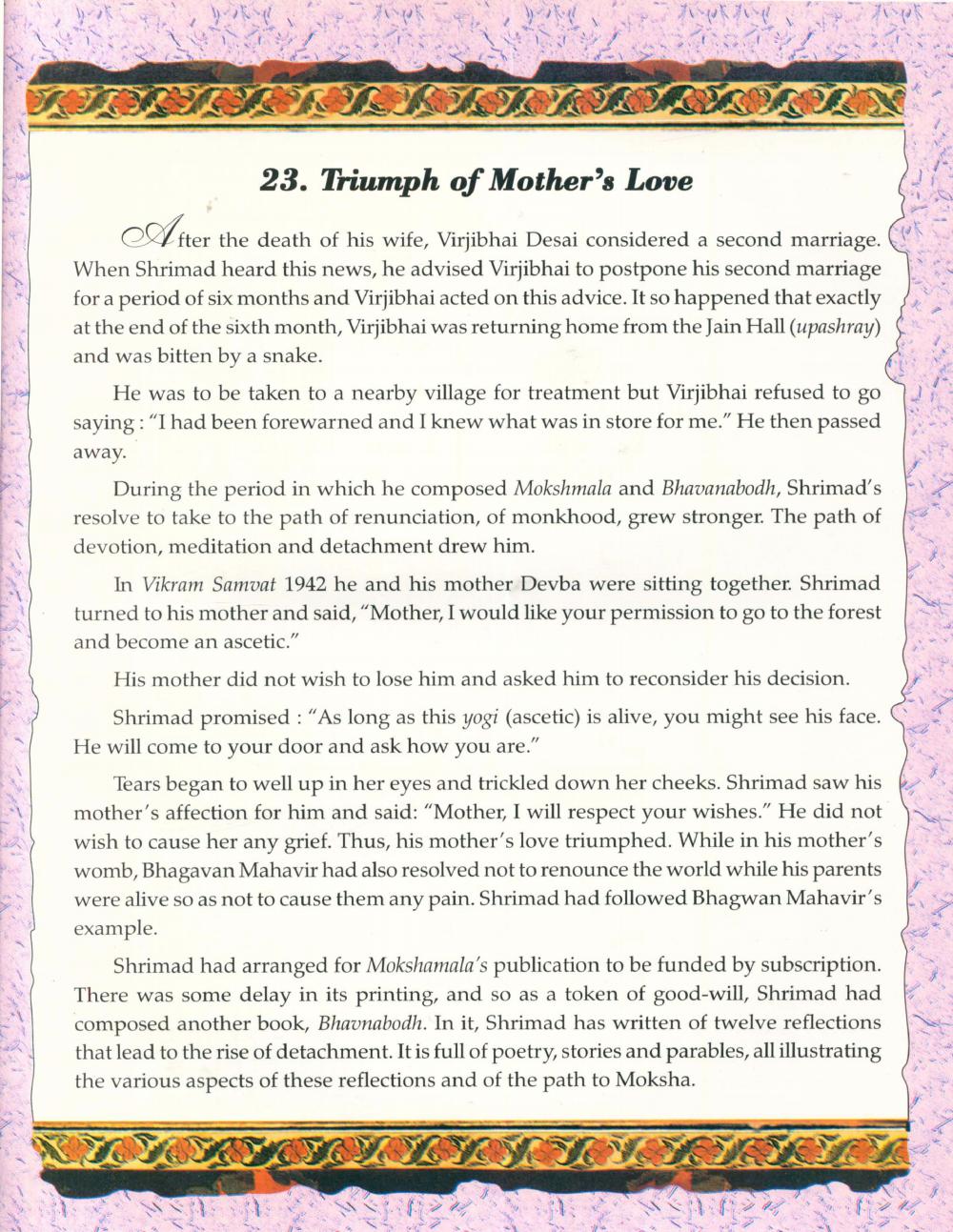________________
23. Triumph of Mother's Love
\fter the death of his wife, Virjibhai Desai considered a second marriage. When Shrimad heard this news, he advised Virjibhai to postpone his second marriage for a period of six months and Virjibhai acted on this advice. It so happened that exactly at the end of the sixth month, Virjibhai was returning home from the Jain Hall (upashray) and was bitten by a snake.
He was to be taken to a nearby village for treatment but Virjibhai refused to go saying: "I had been forewarned and I knew what was in store for me." He then passed away.
During the period in which he composed Mokshmala and Bhavanabodh, Shrimad's resolve to take to the path of renunciation, of monkhood, grew stronger. The path of devotion, meditation and detachment drew him.
In Vikram Samvat 1942 he and his mother Devba were sitting together. Shrimad turned to his mother and said, "Mother, I would like your permission to go to the forest and become an ascetic."
His mother did not wish to lose him and asked him to reconsider his decision.
Shrimad promised : "As long as this yogi (ascetic) is alive, you might see his face. He will come to your door and ask how you are."
Tears began to well up in her eyes and trickled down her cheeks. Shrimad saw his mother's affection for him and said: "Mother, I will respect your wishes." He did not wish to cause her any grief. Thus, his mother's love triumphed. While in his mother's womb, Bhagavan Mahavir had also resolved not to renounce the world while his parents were alive so as not to cause them any pain. Shrimad had followed Bhagwan Mahavir's example.
Shrimad had arranged for Mokshamala's publication to be funded by subscription. There was some delay in its printing, and so as a token of good-will, Shrimad had composed another book, Bhavnabodh. In it, Shrimad has written of twelve reflections that lead to the rise of detachment. It is full of poetry, stories and parables, all illustrating the various aspects of these reflections and of the path to Moksha.




